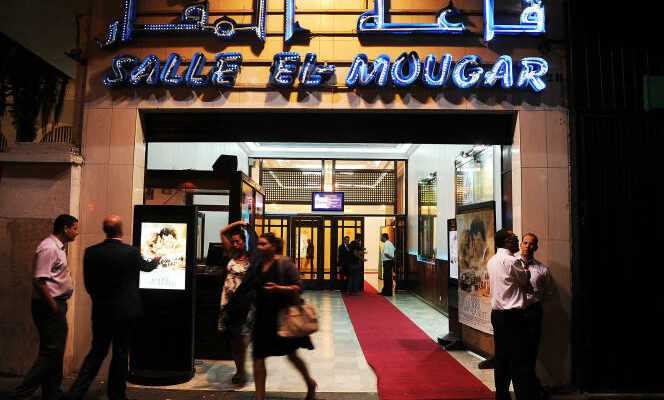To not miss any African news, subscribe to the newsletter of “World Africa” from this link. Every Saturday at 6 a.m., find a week of news and debates covered by the editorial staff of the “World Africa”.
Sofia Djama does not mince her words. The dissolution of the Fund for the Development of Art, Technique and the Film Industry (Fdatic) signs purely and simply, “the killing of Algerian cinemasays the director. We are falling behind with projects that have been blocked for two yearswarns the filmmaker. Professionals are in an increasingly precarious situation. It is impossible to project. »
“In Peril”, “On the Verge of Asphyxiation”… The seventh Algerian art “ no longer has public funding and we have no answer as to what is planned to keep it alive,” several professionals in the sector are indignant in a forum shared since mid-March on social networks.
An anger that is all the more bitter in that the distribution and exploitation networks for films in Algeria have long been failing. The country no longer has around twenty cinemas, compared to nearly 450 in 1962.
Launched five years after independence, the Fdatic was one of the rare, if not the only, public support mechanisms for cinematographic creation in Algeria. On their own, the subsidies it allocated were never sufficient to fully finance a film, recognize the professionals.
Budget cuts
But these sums, which could reach 300,000 euros, were “important for initiating negotiations with foreign partners”underlines Yacine Bouaziz, producer within Thala Films, a company created in 2010 in Algiers.
Official since December 31, 2021, the abolition of Fdatic was decided as part of the budget cuts made by the finance law. A consequence of the economic crisis, but also of the opacity which surrounded the management of this fund, estimates Aziz Hamdi, project manager at the Working Group on Cultural Policy in Algeria (GTPCA), an independent collective created in 2013.
“Few films posted their balance sheets after each production. We also did not know the budget of the Fdatic, the selection criteria or how much the films were financed “he says.
“There was definitely some mismanagement. We know that there have been productions that have benefited from too much generosity, but that does not mean that we have to sacrifice this fund, which has also allowed the emergence of films made with accounting that respects the law. »supports Sofia Djama, whose next film, Quarter to Thursdaywill have to do without Algerian public funding.
Trying to reassure professionals
The director, whose first feature film The Blessed had been selected for the Venice Film Festival in 2017, fears that the disappearance of public aid will discourage aspiring filmmakers. Despite the lack of means, a new generation of authors and filmmakers had emerged in recent years and “began to become an identifiable force on the international festival circuits, she assures. We were talked about as the new wave of Algerian cinema”.
In 2019, Yacine Bouaziz participated in the Cannes Film Festival with the production ofAbu Leila by Algerian director Amin Sidi-Boumédiène. In 2022, no Algerian film is in the selection of the Cannes festival and, on the side of the producers, it is dead calm.
“Between the Covid and the funding crisis, we haven’t worked for a year”regrets the producer, whose last project – the short film All night long by director Fayçal Hammoum – was shot in 2020 and presented in 2021 at the Clermont-Ferrand International Short Film Festival.
In an attempt to reassure professionals, the director of development and promotion of the arts at the Ministry of Culture, Missoum Laroussi, wanted to recall in April 2021 that the Fdatic had “supported a total of 139 feature and short films and documentaries” between 2015 and June 2020. If “the legal and procedural form had to change”the public assistance fund will be “preserved”had then assured members of the Fund.
In October 2021, the creation of a National Center for the Film Industry, reporting to the Prime Minister, was announced by presidential decree. The organization, whose objective is to “to develop and promote the film industry” is, according to professionals interviewed by The world, supposed to replace the Fdatic. But it is still not operational.
